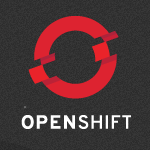 NEWS
NEWS
 NEWS
NEWS
 NEWS
NEWS
![]() Red Hat, known for keeping its enterprise distribution completely open source and still becoming the first $1 billion open source company, finally released the source code for its OpenShift platform-as-a-service. Red Hat launched the OpenShift beta in May 2011, but despite the company’s open source pedigree, it has remained closed source until now.
Red Hat, known for keeping its enterprise distribution completely open source and still becoming the first $1 billion open source company, finally released the source code for its OpenShift platform-as-a-service. Red Hat launched the OpenShift beta in May 2011, but despite the company’s open source pedigree, it has remained closed source until now.
Part of the foundation for OpenShift came from Red Hat’s acquisition of the Java PaaS Makara in November 2010, not long before Salesforce.com acquired Heroku. The two acquisitions brought the spotlight to PaaS, which had been somewhat in the shadow of its cloud siblings infrastructure-as-a-service (IaaS) and software-as-a-service (SaaS). In April 2011 VMware launched its own open source PaaS, Cloud Foundry.
As Rishidot Research analyst Krishnan Subramanian notes at CloudAve, part of this delay stemmed from the need to ensure that all of Makara’s code could legally be open sourced. “However, this delay did cost them mindshare as VMware’s CloudFoundry has gained valuable traction among the developers in the last one year,” Subramanian writes.
Still, it’s great to see Cloud Foundry getting some real open source competition. I’ve been hearing grumblings from developers about VMware’s governance of the project, so the opportunity for OpenStack hasn’t passed yet. Red Hat has a better understanding of open source than VMware, a company that can be flat out hostile to open source initiatives. PaaS is still a young category and it’s too early to crown winners in the space.
Besides the challenge posed by competitors like Cloud Foundry and proprietary, hosted PaaSes such as Heroku and Engine Yard, OpenShift suffers from a lack of a business model. Red Hat CEO Jim Whitehurst said during Red Hat’s Q4 earnings call: “It’s as much a business model beta as it is a technology beta. So there’s obviously no revenue. There is no revenue stream at all. It is kind of a gratis service that we are offering to anyone.”
Red Hat will likely have many options for monetizing the project, such as paid OpenShift hosting as well as paid support for privately hosted instances. VMware has yet to make clear its own plans for monetizing Cloud Foundry, but its new cloud consultancy is probably an indication of what the company will be doing. Still, either company could pull support for their respective open source projects if the revenue isn’t there. The challenge for both is in creating a community foundation that will outlast corporate contributions.
Support our mission to keep content open and free by engaging with theCUBE community. Join theCUBE’s Alumni Trust Network, where technology leaders connect, share intelligence and create opportunities.
Founded by tech visionaries John Furrier and Dave Vellante, SiliconANGLE Media has built a dynamic ecosystem of industry-leading digital media brands that reach 15+ million elite tech professionals. Our new proprietary theCUBE AI Video Cloud is breaking ground in audience interaction, leveraging theCUBEai.com neural network to help technology companies make data-driven decisions and stay at the forefront of industry conversations.